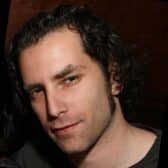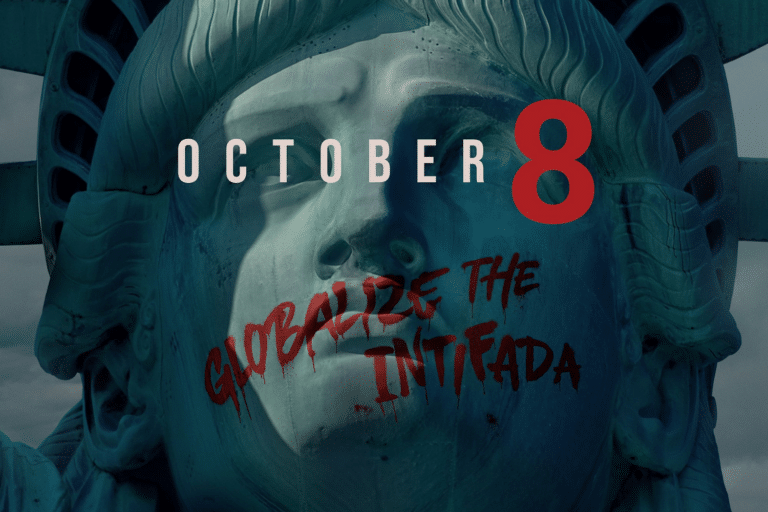
On Oct. 7, 2023, Irit Lahav narrowly escaped death or capture when Hamas terrorists stormed her community, Kibbutz Nir Oz. Using makeshift materials — parts of a Dyson vacuum cleaner, leather, and an oar — she reinforced the lock on her safe room. In the opening moments of the new documentary
“October 8,” Lahav explains how her brother, an engineer, sent her a picture instructing her how to create a makeshift lock—an act of ingenuity that likely saved her life.
For Wendy Sachs, the director of the gripping documentary, Lahav’s account was harrowing.
“She told me Hamas came back five times over 14 hours,” Sachs told Unpacked. “They thought they were going to die.”
Why Sachs was determined to make “October 8” — no matter what
On Oct. 8, just one day after the Hamas massacre, Sachs was shocked to see pro-Hamas protests erupt in Times Square. Soon after, a statement signed by more than 30 student organizations at Harvard University placed full blame for the attack on Israel.
Determined to push back against the growing wave of misinformation and antisemitism, Sachs drafted a treatment for a documentary. While agents praised her concept, none were willing to represent her.
“No one wanted to represent the film,” Sachs said. “They liked me, and they were like. ‘You go, girl.’ But they said, ‘you’re not gonna find distribution.’”
Undeterred, Sachs poured everything into the project, ignoring the skeptics.
She said she put her “whole life” into the movie and “shut out the noise” from naysayers.
Despite the initial resistance, “October 8” eventually found a distributor. The film, set to premiere in theaters on March 13, is being released by Briarcliff Entertainment.
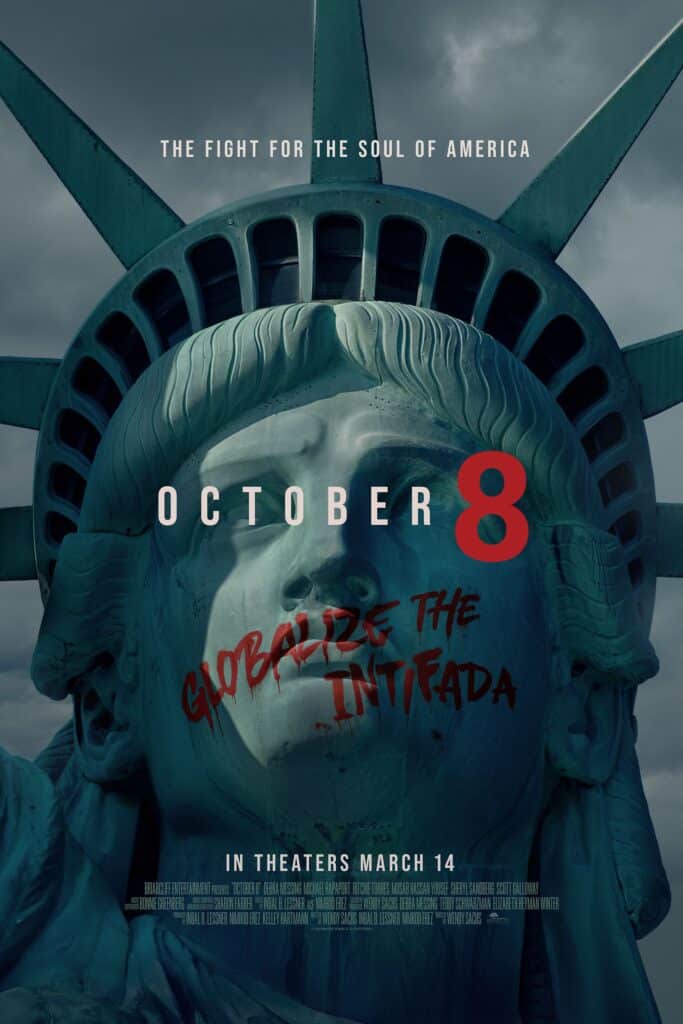
Why were most Jewish celebrities silent?
One of the few lighthearted moments in “October 8” comes from Jewish comedian Michael Rapaport, who quips that he’s hardly the biggest Jewish celebrity in Hollywood — yet many of those with larger platforms remained silent. Jewish actress Debra Messing, one of the few who spoke out, appears in the film and has attended pro-Israel rallies.
Sachs believes fear played a major role in keeping Jewish stars quiet from publicly supporting Israel or calling for the release of the hostages.
“There is a fear of taking a career hit by being too vocal, being cancelled, being protested, losing followers on social media,” Sachs explained. “The climate out there is really radioactive. The entire entertainment industry is fearful. Even saying something like ‘bring the hostages home’ has become nuclear.”
“We’re in a really wild moment right now where there is a loss of moral clarity about right and wrong,” she added.
A Jewish college student was betrayed — but refused to back down
The documentary highlights the story of Tessa Veksler, who served as student body president at the University of California, Santa Barbara. When her support for Israel became known, students reacted as if she had “emerged from the Zionist closet” — despite the fact that she had also been president of Students Supporting Israel when she ran for office.
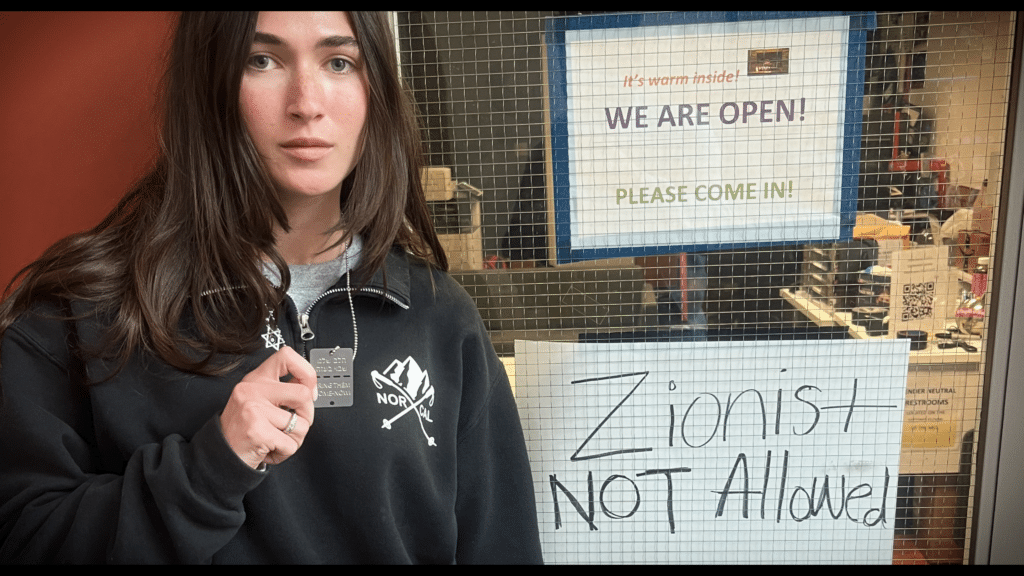
A recall effort against her failed by a single vote.
“Many of the people that voted against me were people that I worked very closely with, and so when people are capable of making such a harsh judgment of your character, seeing your work, your personality and your efforts for such a long period of time, it’s a huge betrayal,” Veksler told Unpacked.
In February 2024, a sign reading ‘Zionists Not Allowed’ was posted near her office. She received online threats and even physical warnings — one placard ominously read: “You can run, but you can’t hide, Tessa Veksler.”
Veksler, now an Israel advocate, public speaker and content creator, said she knew it was an important moment for her to stand up, because if she resigned, or sowed fear, the same tactic could be repeated against Jews in student government positions across the country.
“I believe that this generation of Jewish young adults has a different burden,” Veksler said. “Yet, we also have a similar experience of Jews for thousands of years that have experienced persecution and have continued to exist and fight against it. I see my responsibility as no different.
“If those generations did all of this for me to be here, then I have that same responsibility. What kept me going after I shared my experience was that I knew that there were young Jewish people looking up to me, waiting to see what I would do. I wanted them to see, even if it was difficult for me, an example of strength and resilience,” she said.
Why “October 8” hits hard
One of the film’s most striking moments comes from Columbia professor Shai Davidai, who, in a now-viral speech, urged students to stand up for their rights.
“This is pure pain,” Davidai says in the documentary, describing how anti-Israel protesters shouted “by all means necessary” — a phrase implying that violence was justified.
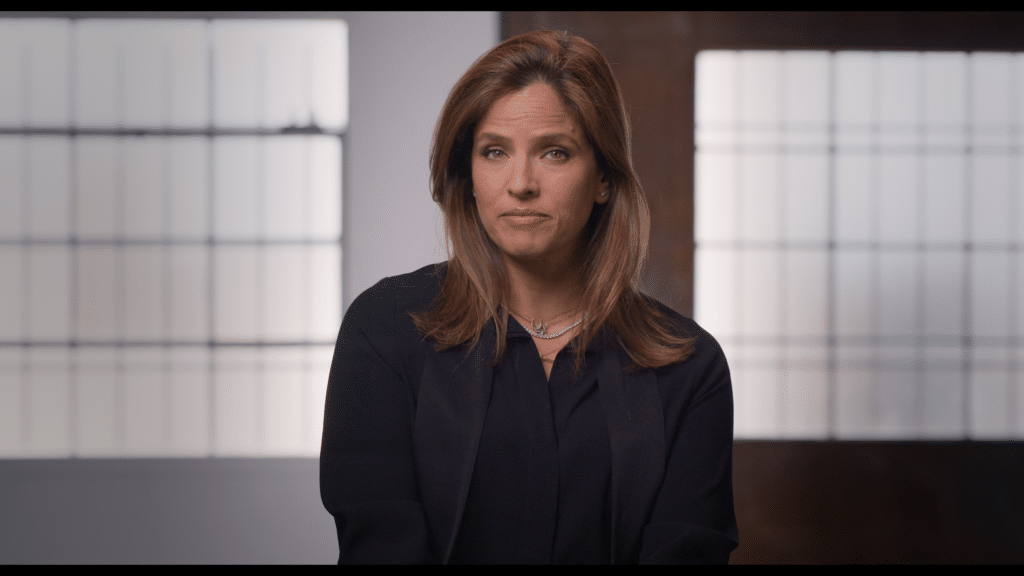
Other voices in the film underscore the disturbing response to October 7.
- Dan Senor, host of the Call Me Back podcast, delivers a chilling observation about the Times Square protests: “Rather than the outrage being directed at those slaughtering Jews, the outrage was directed at Jews for objecting to being slaughtered.”
- Bari Weiss, founder of The Free Press, notes that after the attack, it felt like “the whole world turned upside down.”
- Noa Tishby, Israeli author and activist, expresses her shock at the denialism and justifications emerging after the massacre.
The documentary also highlights Cornell associate professor Russell Rickford, who, just days after Oct. 7, described Hamas’ attack as “exhilarating” and “energizing.”
“I would say it was shocking but not surprising,” Sachs said. “I think what we’re seeing with faculty is a real indoctrination of pro-Hamas ideology and an obsessive hate of Israel that has blinded them to the atrocities of October 7.”
Unveiling a decades-old plan
One of the film’s most revealing moments comes from Lorenzo Vidino, director of the Program on Extremism at George Washington University.
Vidino explains that in 1993 — four years before Hamas was officially designated a terrorist organization in the U.S. — the FBI recorded a meeting of Hamas operatives at a Marriott hotel. The group openly strategized about how to infiltrate American college campuses and manipulate media narratives.
“They weren’t considered a terrorist group back then, but they were being monitored,” Sachs said of Hamas, which America listed as a terrorist group in 1997. “A lot of young people don’t understand what they are supporting.”
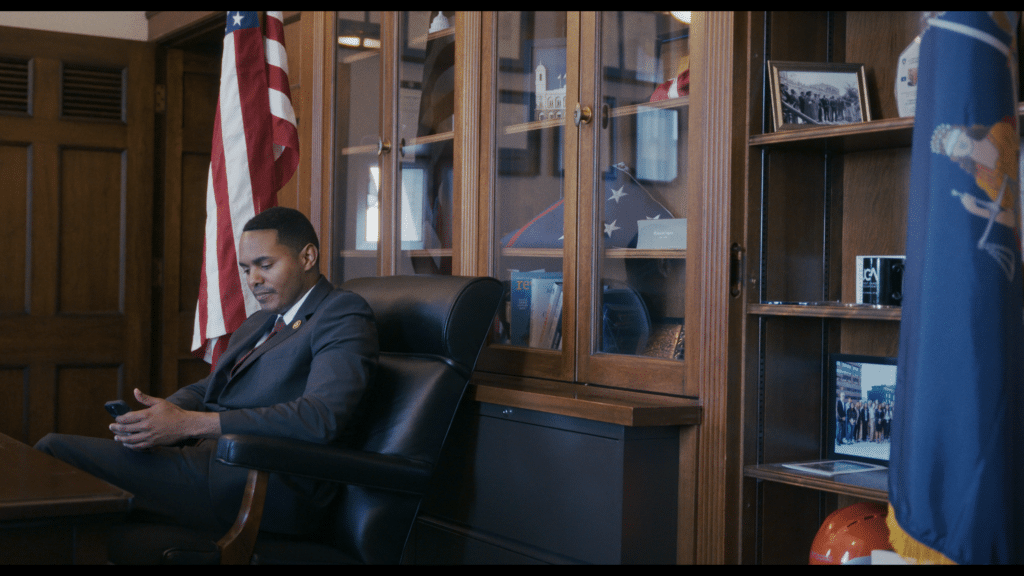
What’s at stake
The film does not cover the Israeli military response in Gaza, focusing instead on the immediate aftermath of the attack and the global reaction.
For Congressman Ritchie Torres (D-N.Y.), who appears in the documentary, the issue extends far beyond Israel but rather, what is at stake is the soul of America.
Sachs hopes her documentary challenges audiences to think critically.
“Anti-Zionism is the modern form of antisemitism,” she stated. “When you see ‘Zionists Not Allowed,’ that means ‘Jews Not Allowed.’ They are targeting Jews—it’s not about Israeli policy.
“We’re not litigating the war,” she emphasized. “We’re talking about basic moral clarity.”
“Anti-Zionism is the modern form of antisemitism,” Sach said. “When you see ‘Zionists not allowed, that means ‘Jew.’ They are targeting Jews. It is very chilling when you see this. It’s not about Israel. It’s not about the government. We’re not litigating the war.”
Two Israeli-American filmmakers speak about “October 8”
Israeli-born editors and producers Inbal B. Lessner and Nimrod Erez, both based in Los Angeles, describe “October 8” as a passion project.
“There was a wealth of information and ideas,” Lessner told Unpacked. “The challenge creatively was to elevate it beyond an agenda-driven talking heads documentary. We wanted to bring in archival footage to make it feel propulsive and let people engage emotionally, not just intellectually.”
She said she hopes the film inspires empathy and open minds.
Erez said many still don’t know what took place on Oct. 7.
“The biggest message I would like people to take from this film is that Israel’s right to exist is non-negotiable,” Erez told Unpacked. “Like all other countries, Israel isn’t perfect. It’s flawed in many ways. But just because it’s flawed doesn’t mean it shouldn’t exist. To me, that’s the heart of the conflict on college campuses. There is an inherent right for Israel to exist, and supporting the destruction of Israel is inherently antisemitic.”
Veksler, who graduated from college last June, believes the film has the power to shift perspectives.
“I think this documentary is a rude awakening to a disease in America which is antisemitism that was prevalent before, but that the world has blinded itself to,” she said. “What I hope this film does is humanize each individual…when people humanize us, hopefully there will be more compassion.”
Originally Published Mar 13, 2025 03:20PM EDT


